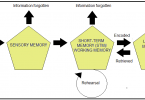A Sporting Ability may seem at first like an asset only applicable in a physically active career or in the sport and leisure industry. However, there are more attributes gained from a sporting ability which can be applied in a range of careers.
perception
Although physical prowess such as enhanced levels of stamina, dexterity, muscular endurance and co-ordination can be useful in physically demanding roles, team games in particular allow for higher levels of perception, and the ability to read a situation and react appropriately. As no two situations in a game situation will be exactly the same, the skills of perception and adaptability are useful attributes in a career where employers seek individuals that are able to adapt and think on their feet, and not become rigid and stagnate. This also incorporates versatility, flexibility and improvisation. Individual sports however allow individuals to become self-dependent, and insightful. Runners for example may start off with a race plan, but would also require the ability to adapt their plan if the tactics of other runners meant that the initial plan would be unsuccessful .
pressure
Sportspeople are also more likely to be used to pressure, whether in training simulations or competitions and match play. Although pressure will stimulate the release of the same hormones, individuals used to frequent pressures will learn to modify their reactions and behaviours so that they can still perform effectively, and will learn to rely more on natural instincts than on conscious thought and overthinking. The Inverted U-model demonstrates the optimal level of pressure and arousal, with a moderate level of pressure being optimal for best performance, but high levels of pressure leading to anxiety and high levels of stress
teamwork
Teamwork is also a key transferable skill practised through team sports, alongside effective communication to meet a shared goal. Individual skills can still be demonstrated but effective team players realise that teamwork will always underpin the success and cohesiveness of the outcome. Communication within in a team is paramount, both on and off the pitch. Players need to be able to communicate with each other and with their coach, and be able to suggest constructive criticisms and praise. Being able to communicate in this manner in the workplace will develop working relationships and allow any criticisms and feedback to be explored positively without causing tension or feelings of inadequacy.
healthy mind
A fit and healthy body also leads to a healthy mind, and mood enhancing properties. Brain function can be improved through the release of hormones and neurotransmitters which stimulates the production of cells in the brain that control learning and memory. This then leads to an increase in cognition and concentration levels, and improved productivity. Positively minded individuals are also less susceptible to depression and low self-esteem, which is a large contributor to sickness absences in the workplace.
leadership
Leadership is a key skill which can be developed through sport from an early age, especially in positions such as captain or player/coach. Leadership incorporates the ability to not only lead a group of people to achieve a goal, but to also be able to delegate, influence and manage different personalities. Leaders are a necessity in all types of employment, and can be put with a group of people to achieve a successful outcome on the behalf of an employer. They are able to respect the ideas and opinions of others, yet be conscious of the direction of the intended approach. Whether or not mistakes and wrong decisions are made, leaders will accept overall responsibility, and then preserve to rectify these whilst maintaining a positive attitude and motivating others. Successful leadership will involve strong organisation, being able to take the initiative, the ability to inspire others, and lead by example.
concentration
All sports require the need for concentration and focus, and self-discipline. For sportspeople, concentration is necessary for situations such as learning new skills, listening to team-talks, and playing matches. The ability to concentrate regardless of distractions is a skill that utilises self-discipline, and will give any employee the ability to withstand fatigue and complete tasks without procrastination. It will also help to maximise the amount of information that can be absorbed, as well as reduce the likelihood of missing key information, such as in meetings or conferences. Self-discipline may be a skill that is widely acknowledged, but few may do anything to anything to improve and strengthen it. Focus and self-discipline are definitely requirements for individuals in highly competitive industries, and are crucial ingredients for success. They will be able to follow decisions through without being swayed from inner beliefs, and manifest inner strength which will conquer challenges and problems. Self-discipline is evident in thoughts, behaviours and emotions, and is built on the foundation of habits. Habit forming takes time to occur, but it can be built upon to where positive habits become second nature, and bad habits no longer pose the risk of not moving forward. A particularly useful habit is that of active and achievable goal setting. Within a sports scenario, the captain of a sports team should be able to take into account the ability of the team and the strengths and weaknesses, and formulate short and long term goals. This could range from short term goals such as improving particular set pieces, and long-term goals such as a realistic finishing position in their league.
ambition
An ability in sport, particularly higher level sport, is unlikely to be built on talent and skill alone, but more so on continued ambition. Being successful in sport, whether mastering individual skills or winning competitions, is based on the ambition to work hard and hold the belief that it will ultimately pay off. An ambitious attitude will always get further in life and lead to more accomplishments than having a talent and doing nothing with it. When starting in a new career, it may be the case that you start nearer the bottom of the ladder than the top but this is the start of new opportunities. An ambitious attitude, hard work and the determination to prove yourself will put you in a better situation to get to where you want to be.






Leave a Comment